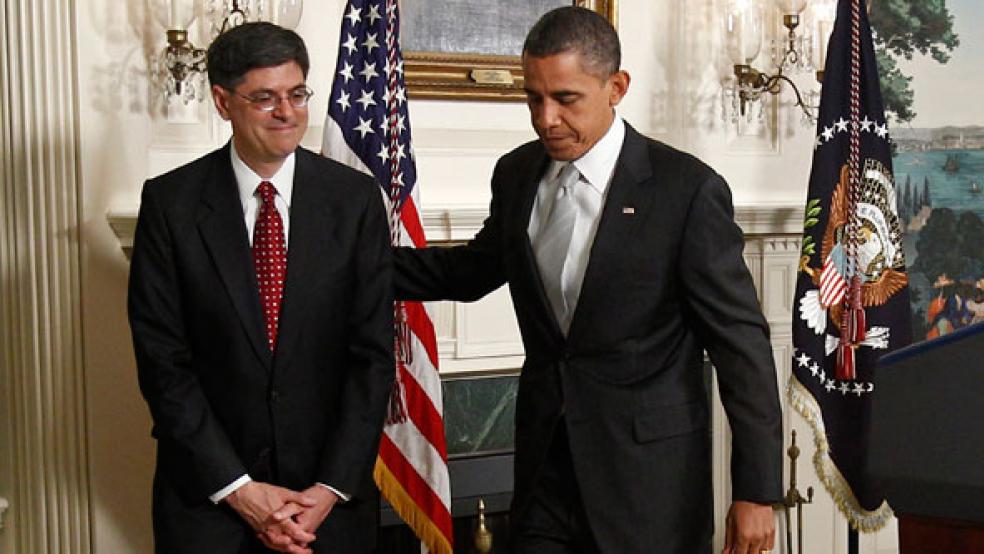Several inside 1600 Pennsylvania have tangled with the legendary journalist Bob Woodward. Few emerged unscathed.
The Obama administration is now fighting back against the best-selling author who made his name and reputation in reporting the Watergate scandal that led to the resignation of Richard Nixon. And it’s revealing what they’re not challenging—the miasma of bad faith with Republicans over the budget and the $85 billion in sequestered budget cuts expected to begin on Friday.
Woodward documents in his 2012 book The Price of Politics that team Obama first proposed the idea of the sequester. Expanding on his work in a Sunday Washington Post op-ed, he noted—as he has before—that both President Obama and his would-be Treasury Secretary Jack Lew lied on the campaign trail be saying the sequester originated with House Republicans. The White House has now ceded that fact.
They blasted Woodward, however, for writing that Obama “is moving the goal posts” by requiring that additional revenues be part of a sequester substitute. The sequester was about spending. Failure by a bi-partisan “super committee” to identify alternative reductions in November, 2011 caused the budgetary hacking that Obama now seeks to avoid to be triggered.
White House officials protested the notion of moving the goal posts, since—regardless of the terms of the agreement—revenue increases have always been part of Obama’s negotiating position on budget issues.
But what they’re not crying foul about is Woodward’s far more damning revelation—that the White House underestimated the GOP on the sequester, and the administration’s actions since have created a vacuum of trust.
Here’s what Woodward wrote in the op-ed that didn’t get them hot and bothered on Twitter, even though it should have: “[Months] of White House dissembling further eroded any semblance of trust between Obama and congressional Republicans. (The Republicans are by no means blameless and have had their own episodes of denial and bald-faced message management.)”
This is the far more disturbing conclusion than any debates about goal posts.
The sequester was a risky gambit by the president. It succeeded in preventing a government default with a debt ceiling deal right before he sought re-election. But it failed to work as advertised on deficit reduction because people assumed it wouldn’t happen.
Obama now stares down another debt ceiling deal—after the sequester is slated to start—with negotiations polluted by the recent past.
Full disclosure: I was Woodward’s researcher and reporter for his 2010 book, Obama’s Wars. Besides some personal allegiances, I have an understanding of his process. Woodward organizes his books with meticulous attention to chronology and that allows him to hold politicians accountable for conflicting statements. His prose also hews closely to the exact words of his sources.
What Woodward shows is that the White House mistakenly thought that Republicans could never stomach cuts to the Defense Department, which constitute half of the reductions in the sequester.
This was a terrible misreading of the Tea Party infused GOP. They care about shrinking the government, even if that means taking the cleaver to cherished parts of the budget. “The only thing worse than Defense spending cuts are no spending cuts at all,” Rep. Jim Jordan, R-Oh., the former chairman of the Republican Study Committee, told The Fiscal Times two months ago. Others routinely make similar remarks, if not parrot the line verbatim.
The first mention of “sequester”—according to the index for The Price of Politics—occurred at a July 12 meeting that included Obama and Boehner. Gene Sperling, director of the National Economic Council, talked about it as a trigger if they didn’t reduce the long-term deficit by a sum equal to the proposed debt ceiling increase.
“If this is a trigger for tax reform,” Boehner is quoted as saying, “this could be worth discussing. But as a budget tool, it’s too complicated. I’m very nervous about this.”
“This would be an enforcement mechanism,” Obama said.
Of course, the idea outlived its enforcement mechanism status to become current policy. The White House officially introduced the idea of a sequester into the deal—which became the Budget Control Act of 2011—on July 27, 2011. “There would be no chance the Republicans would want to pull the trigger and allow the sequester to force massive cuts to Defense,” the book has Obama’s team as reasoning.
Jump to page 345 as the deal is coming together and Democrats are stunned that Republicans would even put the Pentagon on the bargaining table as part of the deal,
“[Obama adviser David] Plouffe couldn’t believe it. These guys are so afraid of increasing revenues that they’re willing to put Defense on the chopping block? Republicans’ revenue phobia was so intense that they would sell out the Pentagon.
“’This is a deal we can probably live with,’ Obama said, willing to do almost something to salvage something and prevent catastrophe.’”
Now, the president says—as his administration churns out reports about job losses and economic doom—the country cannot abide by this arrangement.




